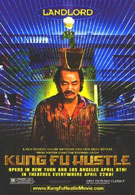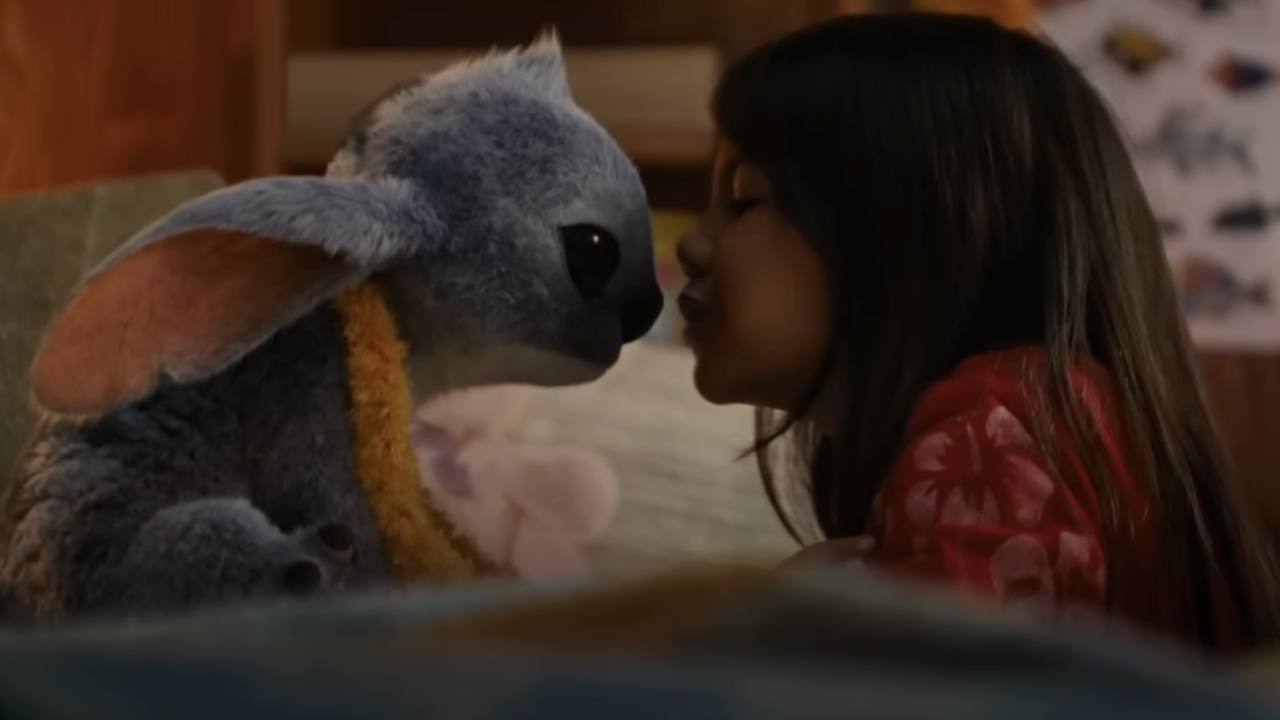When the villains of Kung Fu Hustle introduce themselves with a swishy line dance, you know you’re in for something special. No it’s not the latest Baz Luhrman musical; it’s the new Hong Kong film from actor/writer/director Stephen Chow.
The well choreographed bad guys are “The Axe Gang”, and they’ve just finished killing off their gangland competition. They call the city’s ineffective cops out of hiding to pick up the bodies, and go back to celebrating. It’s 1940’s Shanghai and they have the run of the town. Enter Sing (Stephen Chow), a wannabe gangster and two bit crook. In the poor neighborhood of “Pig Sty Alley” he attempts to con a barber out of some cash. He botches everything and suddenly the whole Axe Gang is declaring war on the residents of “Pig Sty”, with the mewling, prat-fall prone Sing stuck somewhere around the edges.
Sing is unlucky to say the least, and his ineffectual attempts at gangdom keep landing him in wacky trouble. Chow has an amazing knack for comic timing and physical comedy, and it’s on full display in Sing. With the film wildly over the top, he mixes crazy CGI with his own abilities to create vicious and unexpected site gags. The movie just keeps escalating, one-upping each impossible over-the-top moment with something even more hilarious and even more ridiculous. When the Axe Gang attacks, the residents of Pig Sty are defended by the likes of a noodle-maker and an effeminate tailor. The fat, chain-smoking landlady even gets in the act, accompanied into battle by her deceptively sluggish, pajama wearing husband.
Chow doesn’t stop with topping himself with big moment after moment. He packs his film with little details and running gags that’ll keep you laughing in between the intentionally outlandish battles. The local barber sports an Elvis haircut and likes to keep his pants down (Perhaps for ventilation?) and in moments of death, characters consistently forget they speak Chinese. Unexpected little gags like that keep the movie balanced, saving it from drowning in a sea of huge battles and crazy Kung Fu powered old men.
It’s like Chow has thrown Bugs Bunny and Jackie Chan in a blender and then had the resulting film directed by Quentin Tarantino. The movie is packed with energy and never stops moving, even if the characters do. Chow’s previous film, Shaolin Soccer showed flashes of this, but never quite reached the heights this one does, with its killer blending of slapstick comedy and Kill Bill style Kung Fu. It’s cartoony and full of life, Chow has hit his stride in a way few other Asian filmmakers have managed to. The film is a visual feast. Sure it uses a lot of obvious CGI but it works in the context of what Kung Fu Hustle is, in fact for this experience looking cartoony is a plus.
The performances are all around fantastic. Chow as mentioned has a wicked sense of physical wit, but the other castmembers prove every bit his equal. Wah Yuen and and Qiu Yuen easily still the show as the Landlord and Landlady respectively. Kwok Kuen Chan wins points as the silly dancing yet stylish Axe Gang leader, and Sri Lung Leung is wonderful as the flip flop wearing Beast.
If there’s any criticism to be leveled at it, it’s that Sing disappears about midway through the film to make room for Pokemon style gang battles, battles in which the powers of the combatants keep escalating until they’re ready to bring Sing back in to become a parody version of Neo. Of course when we think parody, we think obvious hack jokes. We think the Wayans brothers. Kung Fu Hustle works on a much more subtle, creative level to parody all sorts of things without beating you over the head with them. The disappearance of Sing is a bit odd narratively, though the battles that take place while he’s off camera are hilarious and wonderful. It just makes it a little hard to latch onto him as a main character, when he’s spending so much time off camera.
Kung Fu Hustle is inspired lunacy by design, the sort of movie best served with a hearty pitcher of beer and a big group of drunken friends. It crosses whatever cultural boundaries might normally separate American audiences from more serious Asian movies like Hero to create a universally fun viewing experience. You don’t need to “get” Asian cinema to laugh at the jokes, or giggle at the intentionally zany moves. Chow misses only a falling anvil to make Hustle a worthy, R-rated successor to “Looney Tunes”. This is a filmmaker who clearly loves making entertaining movies, and that joy translates into his absurdly delightful, screwball film.











